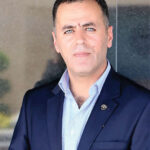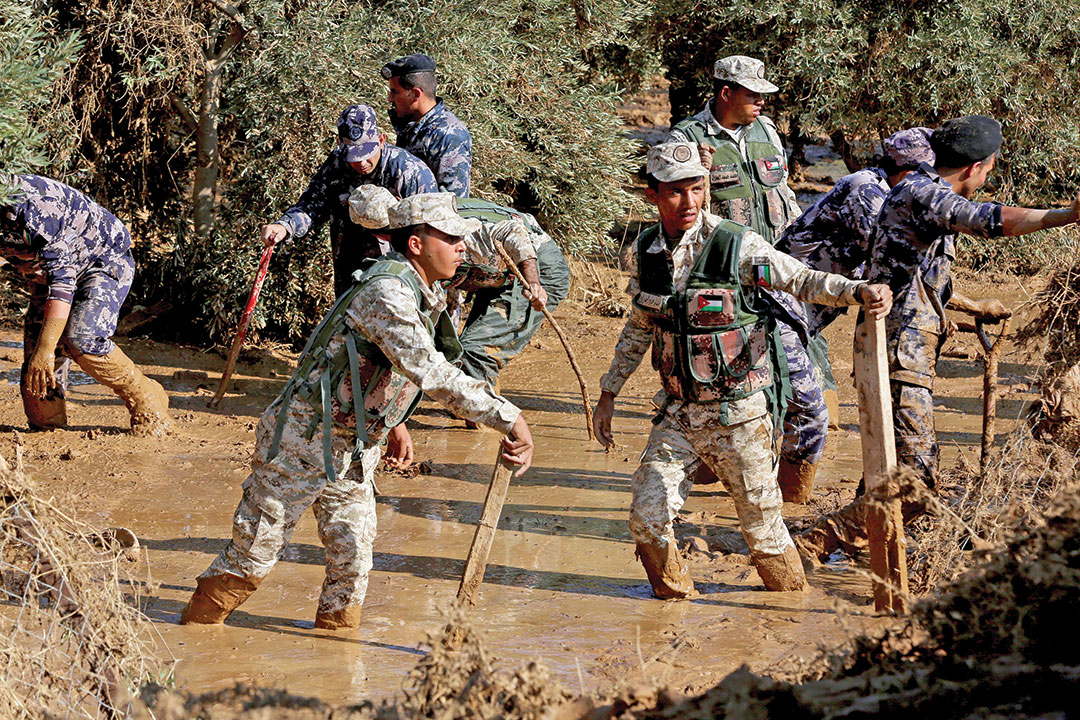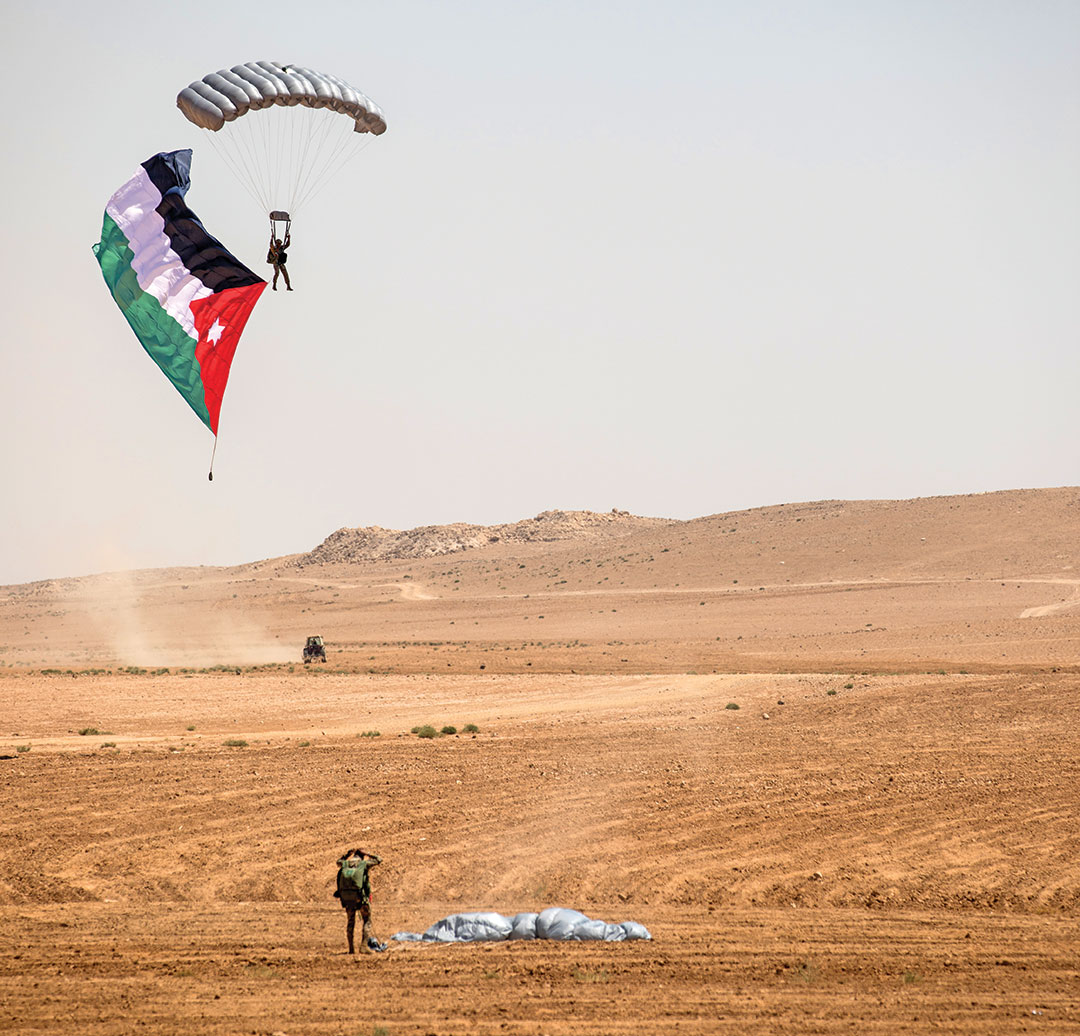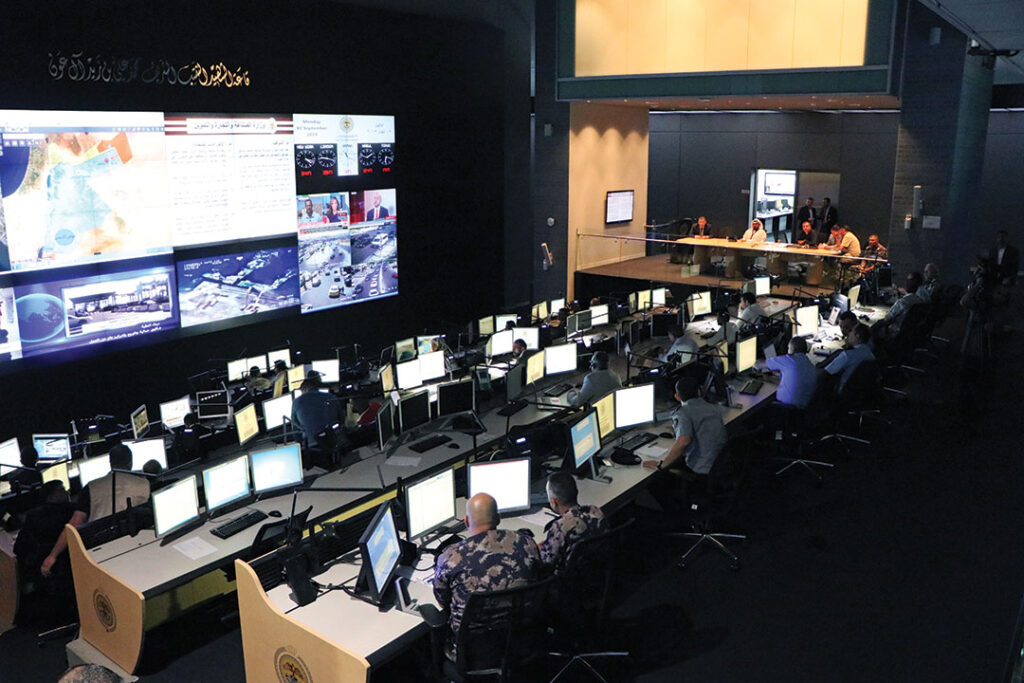Jordan’s National Center for Security and Crisis Management Brings Together Military and Civilian Agencies
UNIPATH STAFF

Planning for crisis management before it strikes is the best way to recover from disasters and overcome security threats. Experiments prove that lack of coordination may lead to casualties, friendly fire, and perhaps death of the injured due to the lack of timely arrival of rescue crews, which leads to great confusion among state agencies. Therefore, it is essential to have a higher authority for crisis management to organize the movement of first responders and arrange communication between civilian agencies and security forces. The National Center for Security and Crisis Management (NCSCM) in Jordan, established in 2005, showed off its capabilities during role playing at Eager Lion 19 that included participation from Jordanian Prime Minister Omar Al Razzaz. Unipath spoke with the center’s chief of training and joint exercises, Col. Nedal Jamahneh.
Unipath: How successful was Eager Lion in helping civilian and military agencies cooperate and function as a team?
Col. Nedal: Let me speak about the National Center for Security and Crisis Management in general and its role in managing the efforts of our nation’s agencies. The center is a comprehensive national umbrella that unifies institutional efforts whether they are security agencies, the public sector, the private sector or the military. The nation has many elements of strength: economic, political, security and military. The center’s strategic role is to support the Armed Forces with the nation’s resources to enable them to achieve their objective and overcome any difficulties during military operations. However, the reverse role happens if we have internal security threats or crises, the military will provide support to the rest of the nation’s security forces and civil institutions to overcome the crisis. We operate across society and focus on comprehensive security. For example, if we experience a shortage in strategic supplies that could reduce food security in the kingdom, we must act swiftly and preemptively to prevent a crisis; this is what I meant by comprehensive security. Therefore our center’s name reflects our role. Comprehensive security comes first, then managing any crisis. We manage crises whether they are man-made like terrorist attacks or natural disasters like earthquakes or floods.
Unipath: Crises always present a challenge regarding which agencies should coordinate as first responders. How can the NCSCM manage such a challenge?
Col. Nedal: This is the core role of our center and the reason for its existence. Let me mention a serious crisis known to the public. In 2005 our nation suffered an unprecedented terrorist attack, when terrorists attacked hotels in Amman. A review of that national crisis concluded that each agency worked perfectly well by itself but found gaps in cooperation when interagency work was demanded. Therefore, His Majesty King Abdullah II bin Al Hussein’s vision in establishing the NCSCM was to eradicate the problem by acting as a national umbrella focused on closing the gap among government institutions and unifying efforts. Based on the NCSCM vision, the center established a committee to study and analyze all threats that could face the kingdom in the future. After identifying the threats, we devised strategic plans to prevent or eliminate them. We have plans for countering terrorist attacks, dealing with masses of refugees and recovering from catastrophes. Included in each plan are specific roles for governmental agencies based on the type of crisis. The strategic plan was distributed to all agencies to allow them to integrate their specific mission sets and responses within the master plan. Thank God, we haven’t experienced a full-blown crisis since we established the center, but we have responded professionally, with full cooperation of security agencies, to a few events.

Unipath: Please share details of some of these events?
Col. Nedal: Well known are the Salt and Karak counterterrorism missions. In addition, we recently had a flash flood that affected large portions of the kingdom. The NCSCM declared it a crisis and dealt with it at the national level. We don’t claim to be free of errors, but the field of crisis management almost always involves casualties. We had about 20 casualties but after declaring a national crisis, we were able to reduce the impact and damage. In fact, if we didn’t declare the flooding a national crisis and use national resources, the casualties would have been worse. The response from governmental entities was almost instantaneous. I will give you good example about how we operated during that crisis. His excellency the minister of interior was here and next to him was the chairman of the Joint Chiefs of Staff and the director of civil defense. The team belonging to the Ministry of Interior on the ground needed an evacuation helicopter, and its request reached the minister. He simply turned to the chairman of the Joint Chiefs of Staff and requested a helicopter. Within minutes the evacuation helicopter was on its way.
Unipath: How does your partnership with U.S forces bolster your expertise?
Col. Nedal: The idea for the center emerged in 2005, and we finished building it in 2013. Therefore the actual age of our center is about five years. If we’re discussing a U.S center for crisis management like the Federal Emergency Management Agency (FEMA), their experience goes back many decades. There are several ways to learn, whether you learn from your mistakes or benefit from a partner that already has vast experience in the field. Thank God we don’t have a real national crisis, so we reached out to our strategic partner, the United States, to learn from its experience, like FEMA and other institutions in the U.S. Armed Forces and agencies. We enjoy a great relationship with our partners in the U.S., especially the state of Colorado — we have cooperation agreements with the Colorado National Guard. In addition, we work with the U.S. State Department’s Anti-Terrorism Assistance program as well as other cooperative programs available to us with the aim of building national capacity. Today I can confidently say we are reaching the stage of standing and walking by ourselves, thanks to the great efforts of our strategic partners.
Unipath: Describe in more detail the challenges of unifying civilian and military efforts during a crisis.
Col. Nedal: Based on my military background and now my crisis management position, I would like to give you my insights. Many leaders remain unaware of the humanitarian aspect that is critical to any military operation. For example, during operations, the Armed Forces faced internally displaced people (IDP) who fled the conflict zone — which is normal in any military operation. If we don’t deal with IDP carefully and professionally, they will become a problem that hinders military operations and threatens mission objectives. When civilians are trapped in a crossfire because of terrorists entrenched in the area, the terrorists will try to exploit the situation and hide among civilians with the goal of blaming the government if innocents are harmed. It helps terrorists to recruit. As a result, instead of being loyal to their government, local citizens may side with the terrorists. This scenario could occur if we mismanage the military and civilian operation. In addition, the international community is responsible for providing humanitarian assistance to civilians in conflict zones, especially in joint operations as practiced in the Eager Lion exercise. In this year’s exercise, we have a scenario involving IDP and a group of individuals who want a peaceful end to the conflict. These groups need assistance that can’t be provided by Jordan alone, but by international organizations like the United Nations High Commission for Refugees, the World Health Organization, and the World Food Programme. These organizations specialize in helping refugees and internally displaced people across the world, and they have to arrange and work through local governments, not with military or security forces. The government will arrange such activities on the strategic level with the security forces that hold the ground. The national center is the entity tasked with communicating among international organizations, local government and the military. We have liaison officers from all ministries and government agencies, and they provide support and recommendations to the commander of the crisis center. Our unofficial motto is “the commander knows something about everything, whereas the expert knows everything about one thing.” That is the reason we have experts and liaisons to advise and to communicate with their headquarters at the commander’s request.

Unipath: You mentioned that the Jordanian prime minister arrived today to declare a crisis as part of Eager Lion training. How does that process work?
Col. Nedal: We work on three levels in the center: tactical, operational and strategic. The tactical level is where the first responder is capable of solving the problem. Let’s say we have a traffic accident or an isolated flood where the first responder is a civil defense or police agency that was able to solve the problem without need of additional support. In this case, our role is to monitor and assess the situation and provide advice and recommendations. But if the event reaches a higher level and the first responder requests support from other agencies within the province, it reaches the operational level. In this case, each province’s security council, which includes general security, the gendarmerie, civil defense and the health directorate, will try to solve the situation with provincial resources. If the province can’t manage the problem alone — or if the nation is facing multiple events simultaneously — we elevate it to the strategic level. The role of the national center is to convey a recommendation to his excellency the prime minister to convene a meeting at the national center to decide whether to declare a crisis. I would like to mention that the national center management consists of the prime minister, the minister of interior, the commanders of all security forces, the chairman of the Joint Chiefs of Staff and the chairman of NCSCM, His Royal Highness Prince Ali bin Al Hussein. They are in charge of declaring a crisis.
Unipath: How does the NCSCM communicate with the citizenry to eliminate rumors and chaos during crises?
Col. Nedal: We operate a media response unit within the national center that works in parallel with operations. Inside the media unit, we have liaisons from all media outlets in the nation. Our goal is to unify messaging during the crisis. Because today’s media tend to sensationalize events if they’re not privy to the correct information, keeping them informed will reduce the impact of crises. Therefore the role of this unit is to communicate with spokespeople for the government, security agencies, civil defense and 84 other spokespeople. For example, if we face a situation at the tactical level like the spread of disease in an isolated area and we detect social media spreading rumors and misinformation, we immediately contact the spokesman of the Ministry of Health to issue a statement to diffuse rumors before chaos ensues. We use information that comes from ministries and agencies down range and communicate that to our citizens. We have direct contact with Jordanian television, radio stations and electronic media. In terms of social media, we monitor the media environment and give initial reports to the operations staff or the NCSCM vice chairman to evaluate the necessity of issuing official statements by our spokesman. Our primary goal is to unify the official media message. Our messages are transmitted in the form of infographics, short videos, tweets and WhatsApp texts.
Unipath: In the Karak terrorist attack, the terrorists spread misinformation to their sympathizers. How do you expose their lies on social media?
Col. Nedal: We have to take the lead by providing information to our people. But sometimes it’s very sensitive to talk about it, like during a hostage situation in which any statement could risk the lives of innocents or disrupt rescue operations. We counter the rumors by providing the truth to the public. Local citizens trust the government, and once we provide the information to the public, our citizens will spread and amplify our message on the street and in social media. That counters the adversary’s narratives.

